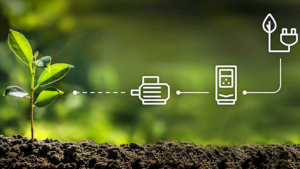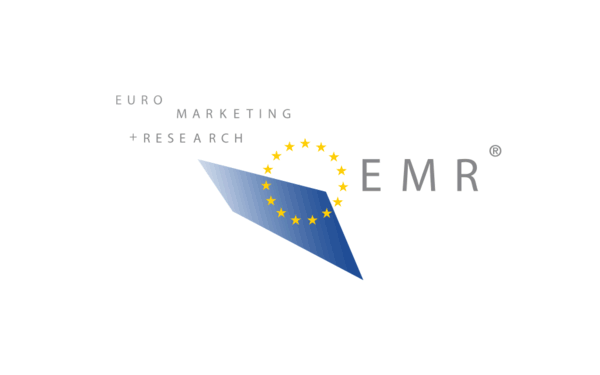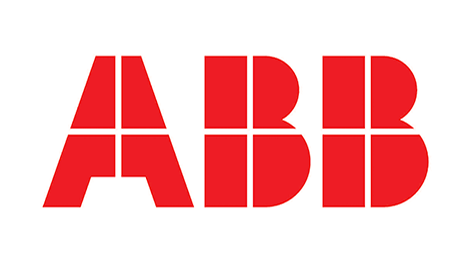ABB – Update on the Energy Efficiency Movement
 At its annual energy efficiency ministerial conference in Versailles, France, the International Energy Agency (IEA) in June presented new analysis revealing the world must double the rate of energy efficiency improvements between now and 2030 in order to meet the aims of the Paris Agreement.
At its annual energy efficiency ministerial conference in Versailles, France, the International Energy Agency (IEA) in June presented new analysis revealing the world must double the rate of energy efficiency improvements between now and 2030 in order to meet the aims of the Paris Agreement.
The analysis underscores both the urgency of the issue and the essential role of industry, as the biggest consumer of energy, in addressing climate change.
In 2021, ABB founded the Energy Efficiency Movement, a global forum that brings together like-minded stakeholders to innovate and act for a more energy-efficient world. The Movement’s vision is to accelerate the transition to energy-efficient economies by leveraging industry’s collective resources, voice and expertise. Now, in its third year, and in view of the IEA’s recent call to speed progress on energy efficiency, it’s a good time to take stock of what’s been achieved by the Movement – and what lies ahead.
Over its first two years, the Movement concentrated on fostering awareness of the forum itself and of the broad range of energy efficiency opportunities available to industrial and commercial companies. Steadily building momentum over this span, the Movement is now approaching 350 member organizations (“movers”) from 30+ countries, with industry leaders like Alfa Laval, Danfoss, DHL Group, EY, Honeywell, Microsoft and Wärtsilä all signing on to bring their unique insights and ideas to bear on the topic. In the past 12 months, the Movement has engaged extensively with the IEA and movers alike, holding symposia on energy efficiency themes in 10 countries.

“A lot of the technology needed to meet the IEA’s targets for energy efficiency exists today,” notes Tarak Mehta, President, Motion business area, at ABB. “A big part of why the Energy Efficiency Movement came into existence was to create awareness of these capabilities and help industry take concrete steps to optimize energy usage.”
In November, the Movement published the Industrial energy efficiency playbook as a resource for executives looking for practical solutions to mitigate rising energy bills and draw down greenhouse gas emissions. The playbook sets out 10 key actions industry can take immediately to begin improving energy efficiency, ranging from smart buildings to heat management, high-efficiency motors and drives, fleet electrification, cloud computing and more.
At an Energy Efficiency Movement event coinciding with June’s Versailles conference, it was announced that Mike Umiker has been appointed to serve as the Movement’s managing director with immediate effect. Umiker assumes the role following a distinguished tenure at ABB, where he most recently served as head of marketing and sales operations for ABB’s Motion business area.

Mike Umiker, Managing Director, Energy Efficiency Movement
“Energy efficiency is the ‘first fuel’ of the global energy transition,” says Umiker. “While the world needs to move fast – and faster – to bring renewables online, we know the greenest energy of all is the energy we don’t consume. I’m excited to see industry coming together behind the Energy Efficiency Movement in such a powerful way – not merely as a collection of individual organizations, but as an ecosystem with a shared ambition to transform how industry uses energy and keep planetary heating below the critical 1.5-degree Celsius threshold.”
To this end, for the rest of 2023, the emphasis is squarely on activating this impressive network of movers to take things to the next level in terms of both reach and impact. The year will undoubtedly see a broadening of the network with yet more movers joining, but it will also be an opportunity to deepen the focus on key industry verticals, use cases and energy-efficient applications.
“Our mandate is to serve as the voice of industry when it comes to energy efficiency, to surface the best practices – and the next practices – organizations can implement,” continues Umiker. “We’ve recently launched a new video series ‘Energy Efficiency Forum’ with relevant stakeholders, and we continue to catalog real-world solutions in energy-intensive areas like HVAC, water, powertrains and many more. We have some important new thought leadership in the works, and I look forward to sharing this in the months to come. We’ll be engaging regularly with leaders and end users across industry in energy efficiency symposia, training programs and events all around the world.”
To learn more and keep abreast of news and innovations in energy efficiency, follow the Energy Efficiency Movement on LinkedIn.
Source
ABB
EMR Analysis
More information on ABB: See the full profile on EMR Executive Services
More information on Björn Rosengren (Chief Executive Office, ABB): See the full profile on EMR Executive Services
More information on Tarak Mehta (President Motion and Member of the Executive Committee, ABB): See the full profile on EMR Executive Services
More information on the ABB Sustainability Strategy: See the full profile on EMR Executive Services
More information on the Energy Efficiency Movement by ABB: https://www.energyefficiencymovement.com/en/ + The Energy Efficiency Movement brings together all stakeholders to innovate and act for a more energy efficient, regenerative, adaptive world. Together, we can make a real difference if that’s how we decide to use our power.
The Energy Efficiency Movement is a global forum of around 200 organizations sharing ideas, best practices and commitments to create a more energy-efficient world.
More information on Mike Umiker (Managing Director, Energy Efficiency Movement by ABB): See the full profile on EMR Executive Services
More information on IEA (International Energy Agency): https://www.iea.org + The IEA is at the heart of global dialogue on energy, providing authoritative analysis, data, policy recommendations, and real-world solutions to help countries provide secure and sustainable energy for all.
The IEA was created in 1974 to help co-ordinate a collective response to major disruptions in the supply of oil. While oil security this remains a key aspect of our work, the IEA has evolved and expanded significantly since its foundation.
Taking an all-fuels, all-technology approach, the IEA recommends policies that enhance the reliability, affordability and sustainability of energy. It examines the full spectrum issues including renewables, oil, gas and coal supply and demand, energy efficiency, clean energy technologies, electricity systems and markets, access to energy, demand-side management, and much more.
Since 2015, the IEA has opened its doors to major emerging countries to expand its global impact, and deepen cooperation in energy security, data and statistics, energy policy analysis, energy efficiency, and the growing use of clean energy technologies.
More information on IEA (International Energy Agency) 7th Annual Global Conference on Energy Efficiency (7-9 June, 2022, Sønderborg, Denmark): https://www.iea.org/events/7th-annual-global-conference-on-energy-efficiency + The International Energy Agency’s 7th Annual Global Conference on Energy Efficiency will bring together ministers, CEOs and decision-makers from government, industry and civil society to explore how international ambition on energy efficiency can be translated into faster and stronger real-world progress. It will focus in particular on implementation over the next 5-10 years, to achieve the gains that are needed on the global path to net zero.
This year’s Annual Conference is jointly organised by the IEA and the Danish Ministry of Climate, Energy and Utilities and will be hosted by Denmark in the city of Sønderborg.
More information on IEA (International Energy Agency) 8th Annual Global Conference on Energy Efficiency (6-8 June, 2023, Paris, France): https://www.iea.org/events/8th-annual-global-conference-on-energy-efficiency + The International Energy Agency’s 8th Annual Global Conference on Energy Efficiency will bring together ministers, CEOs and other senior leaders to help achieve the faster progress on energy efficiency that is needed to address today’s global energy crisis and pressing climate imperatives.
Participants will consider how policy action in areas such as innovation, digitalisation and finance can help governments as they turn to energy efficiency to boost affordability, security and climate action. Across two days of high-level discussions, the Global Conference will provide an action-oriented forum for decision makers to share experiences of implementing energy efficiency policy on the ground and driving investment in real-world projects.
The 8th Global Conference is hosted by French Minister of Energy Transition, Agnès Pannier-Runacher and IEA Executive Director, Dr Fatih Birol, in partnership with Schneider Electric. This year’s event will take place in person in Paris from 7 to 8 June 2023, and will include a pre-conference day on Tuesday 6 June, featuring side events and a welcome reception.
More information on Net Zero: https://www.iea.org/reports/net-zero-by-2050 + The number of countries announcing pledges to achieve net zero emissions over the coming decades continues to grow. But the pledges by governments to date – even if fully achieved – fall well short of what is required to bring global energy-related carbon dioxide emissions to net zero by 2050 and give the world an even chance of limiting the global temperature rise to 1.5 °C. This special report is the world’s first comprehensive study of how to transition to a net zero energy system by 2050 while ensuring stable and affordable energy supplies, providing universal energy access, and enabling robust economic growth. It sets out a cost-effective and economically productive pathway, resulting in a clean, dynamic and resilient energy economy dominated by renewables like solar and wind instead of fossil fuels. The report also examines key uncertainties, such as the roles of bioenergy, carbon capture and behavioral changes in reaching net zero.
More information on Dr. Fatih Birol (Executive Director, International Energy Agency): https://www.iea.org/contributors/dr-fatih-birol
More information on Alfa Laval: https://www.alfalaval.com/ + Alfa Laval is a leading global provider of first-rate products in the areas of heat transfer, separation and fluid handling. With these as its base, Alfa Laval aims to help enhance the productivity and competitiveness of its customers in various industries throughout the world. We define their challenges and deliver sustainable products and solutions that meet their requirements – mainly in energy, the environment, food and the marine industry.
More information on Tom Erixon (President & CEO, Alfa Laval): https://www.alfalaval.com/staging/investors-old/corporate-governance/#ref266994
More information on Danfoss: See the full profile on EMR Executive Services
More information on Kim Fausing (President and CEO, Danfoss): See the full profile on EMR Executive Services
More information on Deutsche Post DHL Group: https://www.dpdhl.com/en.html + Deutsche Post DHL Group is the world’s leading logistic company. The Group connects people and markets and is an enabler of global trade. It aspires to be the first choice for customers, employees and investors worldwide. To this end, Deutsche Post DHL Group is focusing on growth in its profitable core logistics businesses and accelerating the digital transformation in all business divisions. The Group contributes to the world through sustainable business practices, corporate citizenship and environmental activities. By the year 2050, Deutsche Post DHL Group aims to achieve zero emissions logistics.
The Group is home to two strong brands: DHL offers a comprehensive range of parcel and international express service, freight transport, and supply chain management services, as well as e-commerce logistics solutions. Deutsche Post is Europe’s leading postal and parcel service provider.
Deutsche Post DHL Group employs approximately 600,000 people in over 220 countries and territories worldwide.
In 2022, the Group generated revenues of more than 94 billion Euros.
More information on Dr Tobias Meyer (Chief Executive Officer, Global Business Services, Deutsche Post DHL Group): https://www.dpdhl.com/en/about-us/management/board-of-management.html
More information on Ernst & Young: http://www.ey.com/ + EY exists to build a better working world, helping create long-term value for clients, people and society and build trust in the capital markets. Enabled by data and technology, diverse EY teams in over 150 countries provide trust through assurance and help clients grow, transform and operate. Working across assurance, consulting, law, strategy, tax and transactions, EY teams ask better questions to find new answers for the complex issues facing our world today.
More information on Carmine Di Sibio (Global Chairman & CEO, EY): https://www.linkedin.com/in/carminedisibio/
More information on Honeywell: See the full profile on EMR Executive Services
More information on Vimal Kapur (CEO, Honeywell): See the full profile on EMR Executive Services
More information on Microsoft: https://www.microsoft.com + Microsoft (Nasdaq “MSFT” @microsoft) enables digital transformation for the era of an intelligent cloud and an intelligent edge. Its mission is to empower every person and every organization on the planet to achieve more. Microsoft refers to Microsoft Corp. and its affiliates, including Microsoft Mobile Oy, a subsidiary of Microsoft. Microsoft Mobile Oy develops, manufactures and distributes Nokia X mobile phones and other devices.
More information on Satya Nadella (Chairman & CEO, Microsoft): https://www.linkedin.com/in/satyanadella/
More information on Wärtsilä: https://www.wartsila.com + Wärtsilä is a global leader in innovative technologies and lifecycle solutions for the marine and energy markets. We emphasise innovation in sustainable technology and services to help our customers continuously improve their environmental and economic performance. Our dedicated and passionate team of 17,500 professionals in more than 240 locations in 79 countries shape the decarbonisation transformation of our industries across the globe. In 2022, Wärtsilä’s net sales totalled EUR 5.8 billion. Wärtsilä is listed on Nasdaq Helsinki.
More information on Håkan Agnevall (President & CEO, Wärtsilä): https://www.wartsila.com/about/organisation-management/board-of-management + https://www.linkedin.com/in/h%C3%A5kan-agnevall-214278/
EMR Additional Notes:
- The Paris Agreement (COP 21):
- The Paris Agreement is a legally binding international treaty on climate change under UNFCC. It was adopted by 196 Parties at COP 21 in Paris, on 12 December 2015 and entered into force on 4 November 2016.
- Its goal is to limit global warming to well below 2, preferably to 1.5 degrees Celsius, compared to pre-industrial levels.
- To achieve this long-term temperature goal, countries aim to reach global peaking of greenhouse gas emissions as soon as possible to achieve a climate neutral world by mid-century.
- The Paris Agreement is a landmark in the multilateral climate change process because, for the first time, a binding agreement brings all nations into a common cause to undertake ambitious efforts to combat climate change and adapt to its effects.
- The Paris Agreement is a legally binding international treaty on climate change under UNFCC. It was adopted by 196 Parties at COP 21 in Paris, on 12 December 2015 and entered into force on 4 November 2016.
- Carbon Dioxide (CO2):
- Primary greenhouse gas emitted through human activities. Carbon dioxide enters the atmosphere through burning fossil fuels (coal, natural gas, and oil), solid waste, trees and other biological materials, and also as a result of certain chemical reactions (e.g., manufacture of cement). Carbon dioxide is removed from the atmosphere (or “sequestered”) when it is absorbed by plants as part of the biological carbon cycle.
- Decarbonization:
- Reduction of carbon dioxide emissions through the use of low carbon power sources, achieving a lower output of greenhouse gasses into the atmosphere.
- Global Warming: Global warming is the long-term heating of Earth’s climate system observed since the pre-industrial period (between 1850 and 1900) due to human activities, primarily fossil fuel burning, which increases heat-trapping greenhouse gas levels in Earth’s atmosphere.
- Global Warming potential (GWP):
- The heat absorbed by any greenhouse gas in the atmosphere, as a multiple of the heat that would be absorbed by the same mass of carbon dioxide(CO2). GWP is 1 for CO2. For other gases it depends on the gas and the time frame.
- Carbon dioxide equivalent (CO2e or CO2eq or CO2-e) is calculated from GWP. For any gas, it is the mass of CO2 which would warm the earth as much as the mass of that gas. Thus it provides a common scale for measuring the climate effects of different gases. It is calculated as GWP times mass of the other gas. For example, if a gas has GWP of 100, two tonnes of the gas have CO2e of 200 tonnes.
- GWP was developed to allow comparisons of the global warming impacts of different gases.
- Greenhouse Gas (GHG):
- A greenhouse gas is any gaseous compound in the atmosphere that is capable of absorbing infrared radiation, thereby trapping and holding heat in the atmosphere. By increasing the heat in the atmosphere, greenhouse gases are responsible for the greenhouse effect, which ultimately leads to global warming.
- The main gases responsible for the greenhouse effect include carbon dioxide, methane, nitrous oxide, and water vapor (which all occur naturally), and fluorinated gases (which are synthetic).

- Hydrofluorocarbons (HFC):
- Hydrofluorocarbons (HFCs) are a group of industrial chemicals primarily used for cooling and refrigeration. HFCs were developed to replace stratospheric ozone-depleting substances that are currently being phased out under the Montreal Protocol on Substances that Deplete the Ozone Layer.
- Many HFCs are very powerful greenhouse gases and a substantial number are short-lived climate pollutants with a lifetime of between 15 and 29 years in the atmosphere.
- HVAC-R (Heating, Ventilation, and Air Conditioning – Refrigeration):
- Heating, ventilation, and air conditioning is the use of various technologies to control the temperature, humidity, and purity of the air in an enclosed space. Its goal is to provide thermal comfort and acceptable indoor air quality.
- HVACR involves maintaining, repairing and installing heating, ventilation, air conditioning, and refrigeration systems.

